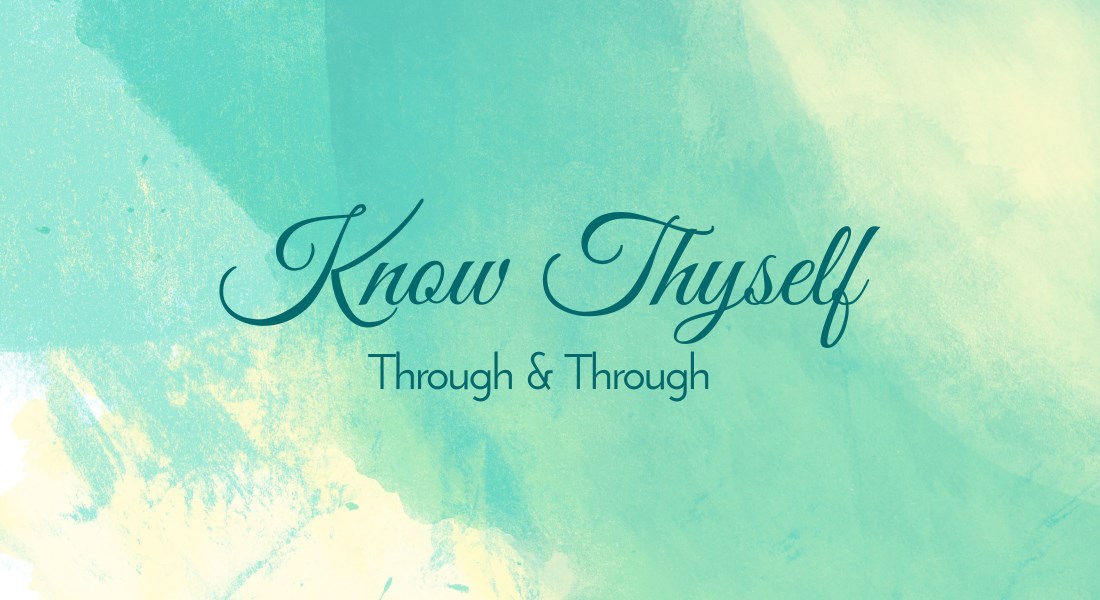
Change Your World, Lifestyle Inspiration, Savvy YouExploring Self-Awareness
Two weeks ago, I published a research blog exploring the importance of self-awareness. In it, I mention how self-awareness is connected to emotional intelligence. I also briefly explored ways of becoming more self-aware. Things like making time for reflection, keeping a journal, assessing beliefs and values, mindfulness meditation, and getting feedback from the people in our lives, can help us become more self-aware.
It is worth repeating that self-awareness is a skill. It is one of the 3 skills which together form a critical competency known as Self-Competence or Personal Competence.
To be self-competent, one must have self-awareness, self-regulation and self-motivation. Self-awareness is not an end in itself. It should support effective self-regulation and self-motivation (among other things). Experts like Daniel Goleman, whose 1995 book introduced EQ to the public, tend to present self-regulation and self-motivation as one skill known as self-management. So we can say that Self-awareness and effective self-management are what make an individual self-competent.
In this post, I share some of what I learned through more online research about how self-awareness relates to self-management. I do so by discussing some things we should understand about ourselves in order to be more self-aware and better able to manage ourselves.
— 1 —

Being able to recognize our emotions and how they lead us to behave is a fundamental part of self-awareness. Emotions explain many of our actions, directly and indirectly. Emotions also strongly influence our performance at work.
One reason for this is that emotions can enhance or impede the clarity of our minds. This in turn will either enhance or impede our perception, performance, relationships and daily experiences.
The idea here is not to avoid our feelings. The purpose of better emotional awareness is better emotional management. It is to help us recover quickly from negative emotions (emotional resilience), cultivate healthy emotional patterns and boost positive emotional states.
Being able to regulate emotions has many benefits. Citing expert analyses, Cary Cherniss, a professor of Psychology who writes for the EI Consortium, points out that “people who are better able to regulate their emotions will find it easier to develop a competency such as Initiative or Achievement drive.” [Read More] Put in simpler terms, people who can regulate their emotions are in a better position to develop the self-confidence and focus to achieve their goals.
Self-awareness and better emotional management also help the brain develop better. Daniel Goleman notes that many of the positive results of Social and Emotional learning programs are connected to improved functioning of certain parts of the brain. [Read More]
So, how well do you know your emotions and emotional patterns? What are the things that trigger your emotions? Are you able to choose how you react regardless of how you feel? How long do negative emotions linger in your mind? It’s important we explore our own emotional patterns through reflection, contemplation, and seeking feedback from those who know us.
— 2 —
Empathy
Empathy means “Sensing others’ feelings and perspectives, and taking an active interest in their concerns.”[Read More] It is a component of Emotional Intelligence.
Being able to recognize and manage your own emotions ultimately helps you recognize others’ emotions. Furthermore, empathy helps us build successful relationships and careers.
The reason for this is that empathy allows us develop the competencies that support good interpersonal relationships and leadership skills. Cary Cherniss writes that Empathy “…enables one to develop a specific competency such as Influence.” And influence, not just authority, is at the heart of what experts think good leadership is all about.
I enjoyed reading Chad Fowler’s article titled ‘Why Empathy is your most important skill‘ In it, this successful programmer and author shares some of the benefits of Empathy in relatable terms. He also shares some useful tips on how to cultivate empathy. Quite rightly, he reminds us that empathy is not reserved for friends alone. We should be able to empathize with our enemies.[Read More]
To be more self-aware today, we need to take a look at how well we empathize with the people around us. Excluding strong moral reasons, are there things that cause us to restrict our empathy to certain people or groups? Does Race, Tribe, Nationality or Gender determine whose feelings we recognize and whose we ignore? Can we trace any recent mistakes to a failure to empathize?
Empathy helps us recognize other people’s perspectives and needs. This, in turn, helps us find ways to make things better for everyone. Empathy is a crucial part of our humanity and lack of empathy often leads to serious failings in conduct. At best, those failures are callous and at worst, they are deeply inhumane and immoral.
— 3 —
Strengths & Weaknesses
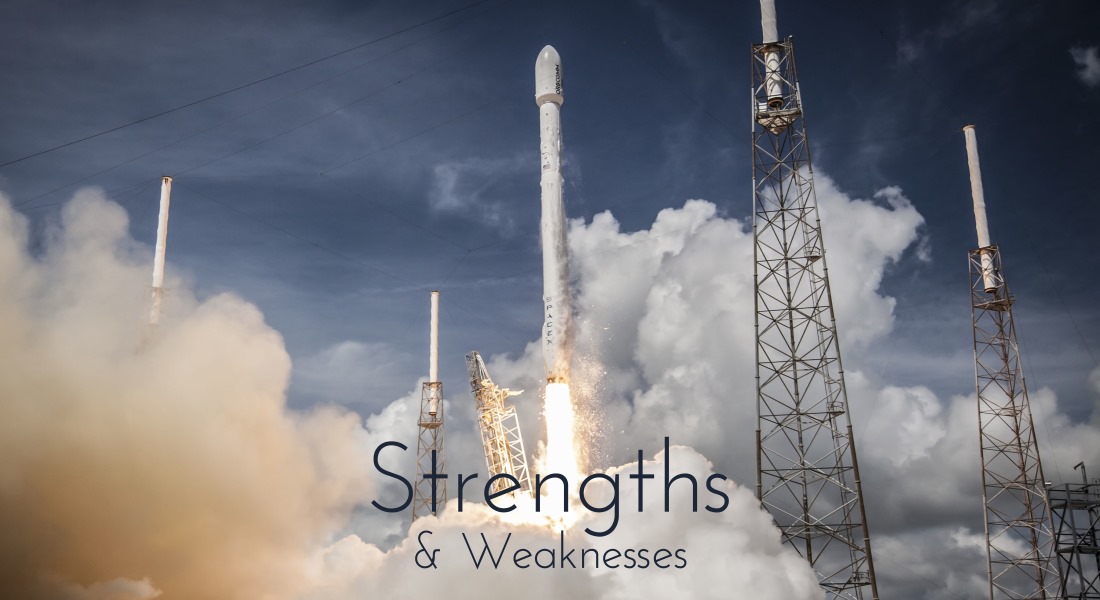
Knowing one’s strengths and weaknesses is a big part of being self-aware. This ability to self-assess is connected to other things like self-confidence and self-motivation. Knowing our strengths and weaknesses also helps us make good plans for the future. We can plan to achieve our aspirations by leveraging our strengths and improving on our weaknesses.
There are many dimensions to this as well. Strengths can be considered a factor of personality, a matter of skills and competencies, or indeed a function of career expertise. All 3 dimensions are important and will affect job performance in different ways. This is why employers give prospective employees psychonometric tests as well as competency tests. The Predictive Index® (known as PI), which is used by employers around the world, is one of such tools that is a “measurement of…work-related personality…” [PREDICTIVE INDEX TECHNICAL OVERVIEW, PAGE 4] As its name suggests, it is used to predict (reasonably, not in absolute terms) how employees will behave and perform at work.
This brings me to the point that there are many ways to come to know your strengths and weaknesses. Reflecting on past experiences (successes and failures) will provide some insight. To get an objective, well-rounded view however, experts agree that it is best to use assessment tools and tests. This makes sense. Why wait for prospective employers to deduce your personality and behaviour patterns when doing so for yourself can boost your chances of actually getting a job, starting a business or achieving your goals?
The PI is not the only assessment test out there. The Briggs-Myers test is also a very popular personality test. And the Clifton StrengthsFinder™ test works with 34 strength themes that seem to coincide with the personality-driven factors that appear in many job postings. There are also field specific tests. I have encountered 2 entrepreneurial assessment tests so far and I’m sure there are many more out there.
Between honest reflection, conversation with a close friend or mentor, and one or two assessment tests, you will have a very good idea of your strengths and weaknesses. This will help you plan well for personal and career growth.
— 4 —
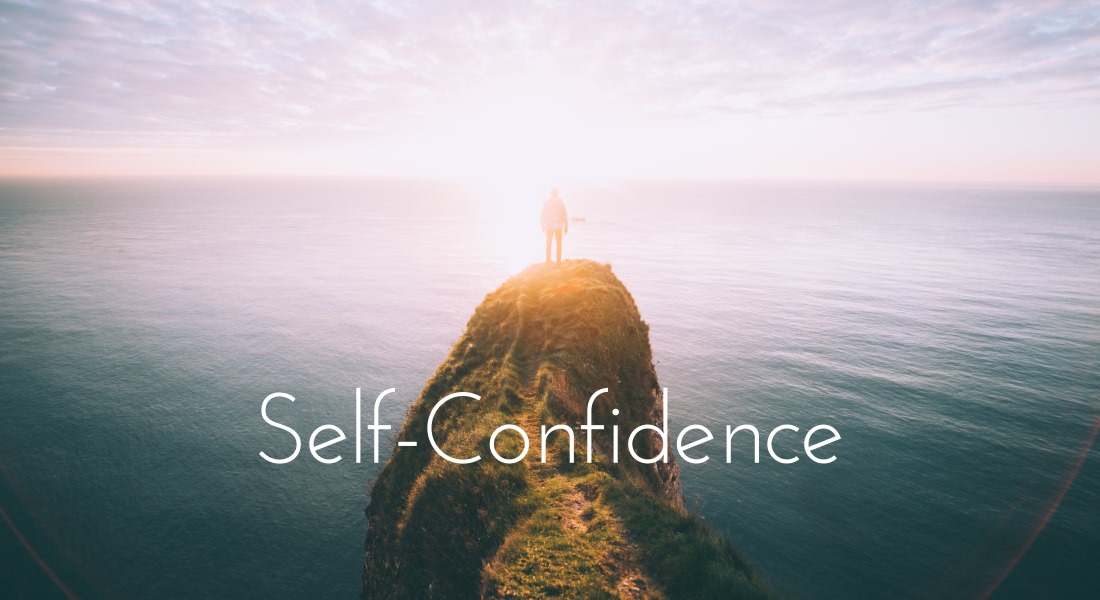
According to the Emotional Competence Framework, self-confidence is “sureness about one’s self-worth and capabilities.” People who have self-confidence “present themselves with self-assurance”. Self-confidence is an important part of self-awareness because it has to do with how we see ourselves and what we project to the world about who we are.
A person who is self-confident can better inspire others to have confidence in her. There’s also a sense in which having self-confidence can help others have confidence in themselves. In these 2 ways, self-confidence matters for leadership, team building, teaching and mentorship.
It’s worthwhile to take a closer look at the 2 dimensions of self-confidence: being sure of one’s capabilities and being sure of one’s self-worth. Ideally, the two should go hand-in-hand. So, a person’s sense of self-worth should closely relate to (though not depend only on) her life achievements and qualifications. Self-love, self-respect and self-understanding also contribute to our sense of self-worth.
But sometimes, these things are misaligned. Self-worth and self-confidence don’t always correlate to achievements, qualifications and self-love. That’s the crux of what experts have identified as the Confidence Gap between women and men.
By underestimating our abilities, expressing self-doubt, nursing unfounded fears of failure, being risk averse, seeking perfection and harboring an Impostor syndrome, we women show that we are less confident than men.
Yet, self-confidence matters so much. As the writers of The Confidence Gap learned, success “…correlates just as closely with confidence as it does with competence.” A lack of confidence can make us considerably less successful. The reason is quite simply because “… the natural result of low confidence is inaction”[Read More]. People succeed because they try, they exert themselves, and they take considerable risks doing do.
The bottom line is that self-confidence can be developed. The writers of this very popular article in The Atlantic defined confidence as “… a belief that stimulates action” and “In turn, taking action bolsters one’s belief in one’s ability to succeed.”
To boost your self-confidence, don’t let your good ideas go to waste. Act on them. Don’t let your fears dominate. Take calculated risks. And don’t forget to value your own track record. Your successes should inspire you to trust yourself and aim higher.
— 5 —
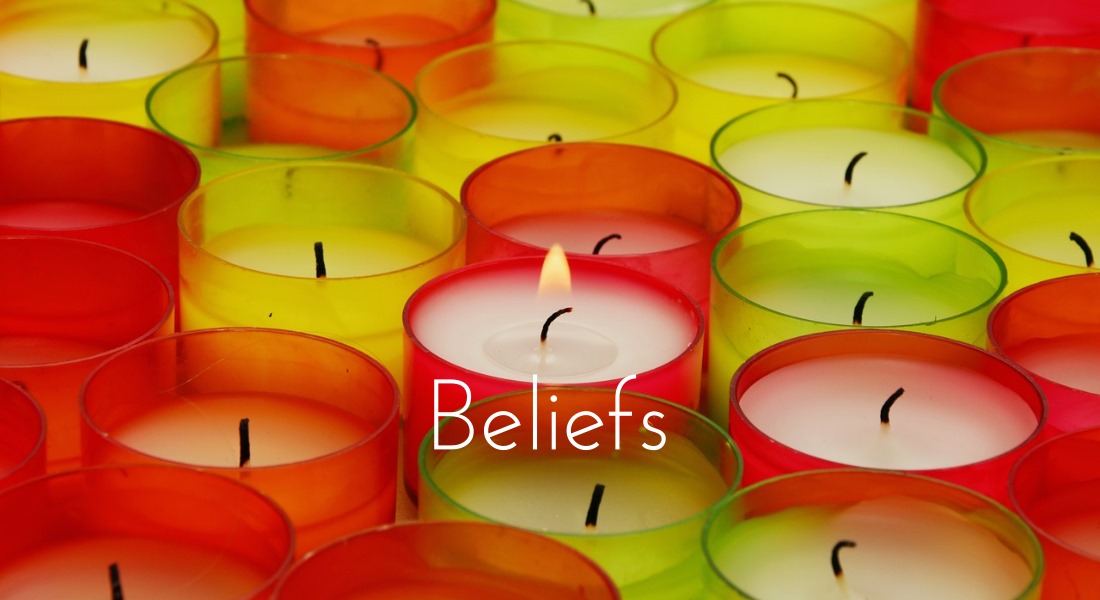
Beliefs are powerful. In many ways, they are the foundations on which much of who we are is built. Mahatma Gandhi said it best, linking beliefs to values by a chain comprised of thoughts, words, actions and habits. The influence of beliefs should not to be taken lightly.
Kevin Rafferty, a leadership coach and author, writes that much of what we see, experience and expect in life are based on our beliefs. While many beliefs are imparted through upbringing, others are formed based on how we interpret past experiences. The most powerful beliefs are often based on childhood experiences.
I recently saw a CNN article and photoslide highlighting peoples’ experiences of sexual abuse. One lady sadly shared that her experience led her to believe sexual abuse was just “…something that happened to children” [Read More]. This is a scary example of how experiences can have a normalizing, validating effect and create new beliefs. Only education (plus counseling and therapy) can break the hold of beliefs like this that often lurk under the surface and are never expressed in day-to-day conversations.
Beliefs are the vessels through which the past exerts the strongest hold on us. They often limit us. They set boundaries around what we think we can achieve, they orient us towards certain behaviours, and they lead us to make our lives conform to patterns that are perfectly avoidable.
I found Kevin Rafferty’s writings on this subject to be very informative. With respect to beliefs that inhibit us he writes that “our challenge is to see that limiting beliefs are not the truth. We have an opportunity to consciously choose our truth, and then, we can lead our lives with awareness, personal power, and authenticity.”
‘Our truths’ are the particular set of beliefs that make us who we are. ‘Choosing your truth’ can mean getting rid of negative beliefs. It can mean reducing the importance of some beliefs compared to others. It can also mean strengthening a particular belief, positioning it to motivate your actions and values better.
To better understand our conscious and unconscious beliefs, we can use Gandhi’s famous quote to reverse engineer them. His famous quote reads: “Your beliefs become your thoughts. Your thoughts become your words. Your words become your actions. Your actions become your habits. Your habits become your values. Your values become your destiny.”
Working backwards from our values and habits to actions and thoughts can help us trace the influence of certain beliefs or default beliefs. Getting a coach or therapist can also help. Finally, there’s really no substitute for reflection and contemplation. The bottom line is this: Know your beliefs, take responsibility them, and always find something good to believe in.
— 6 —

Coping mechanisms are the techniques we use to help ourselves in times of physical and emotional crises. Daniel Goleman writes that developing and evolving positive coping mechanisms is an essential part of Emotional Intelligence [WIKIPEDIA].
Coping mechanisms can either be positive or negative. A positive coping mechanism will help to reduce stress while a negative coping technique can become a problem itself. Bad habits like alcohol abuse, compulsive eating (extreme cases), drug addiction and other harmful addictions are often the result of negative coping techniques. Though people resort to these techniques unconsiously to deal with stress [Read More], they slowly take on a life of their own. This is because they don’t deal with the cause of the stress or the emotions that result from the stressful situation.
From the research I’ve done, it seems that when confronted with stressful situations, we need to employ positive coping mechanisms to accomplish 2 things: to deal with the cause of the stress and to manage the emotions that result from the stress. Techniques that deal with the cause of stress are called ‘Problem-Solving strategies‘. And techniques that help us manage the emotional turmoil resulting from stress are said to be ‘Emotion Focused’.
Even when the cause of the problem is out of our control, experts agree we should do something to manage negative emotions. We can turn to our social support system (Family, friends), use humor, engage in creative and physical activities, meditate, pray and search for positive things in the stressful situation.
I don’t think many people realize that using problem-solving strategies alone may not be enough. Problem solving strategies do not deal with the emotional component of stress. This partly explains why hard-working and successful people are particularly prone to burnout. They deal with problems (successfully) all the time but often neglect to take care of themselves emotionally and mentally.
To be more self-aware, you need to understand your default coping mechanisms. Like me, I’m sure you’ll find that you have some positive and negative ones. The Wikipedia article on Coping is quite detailed and will help you gain some perspective. Our goal should be to consistently develop positive coping mechanisms and do away with negative ones.
— 7 —

Our limits, like our personalities, skills and competencies, are dynamic. If physical exercise has taught us anything it’s that with consistency and measured effort, we can extend our limits. The same is true of mental and emotional limits. In fact, the very process of growing and maturing is characterized by the extension of limits. As we grow, we are progressively able to do more, endure higher levels of stress, balance more responsibilities, work longer hours, etc.
Notwithstanding the elastic quality of our bodies and minds, there’s always a limit. It is important to have a feel for your limits. The reason this is very important is that terrible things can happen when we allow ourselves to be pushed to the limit. When this happens, the resulting emotional and physical crises can be severe. This is the point where people snap emotionally, experience nervous breakdowns, develop trauma symptoms and even physical health crises like high blood pressure, heart attack and stroke.
Furthermore, normal coping mechanisms tend to fail at the limit. Activities and practices that would normally give us a boost will often not be sufficient once we have reached the crisis state beyond our limit. At that point, it is critical to seek the assistance of a health professional. Doctors, therapists, wellness experts and rehabilitation experts are best equipped to guide our recovery.
We should not let ourselves be pushed to the limit. The potential cost of doing so is just to high. We need to be compassionate with ourselves, employing positive coping mechanisms regularly. Our routines should accommodate our need to refresh and reboot.
We should also do our routine medical checkups. Sometimes, only a doctor’s assessment can help us understand that we must reduce the levels of stress to which we are exposed. Knowing your limit is just as important as knowing your strengths and weaknesses. And for the record, limits are not weaknesses. They are facts. They become a source of weakness when not taken into account.
POSTSCRIPT
I like to think of this post as a sequel. Like the one before it, writing this post has been a learning experience. I chose this topic because I felt discussing the importance of self-awareness was not enough. I thought it was important to shed some light on the things we need to know in order to be self-aware.
This post is quite detailed but is far from exhaustive. I hope you have found it useful. Please feel free to share your thoughts. Reach out to me on Twitter: @HMJServices or @RoTweet. You can also email me at HMJServices@gmail.com. Thanks!
-
10Mar
2015 – 2016 Crossover Fashion Trends
Ah Fashion! If you're a fashion lover you'll recognize all the trends below because we totally enjoyed them in 2015. They graced runways and were do...
-
15Jul
Athleisure
We see it everywhere. It's the new cool. It looks comfy, it feels comfy and it's proudly sporty. This trend is aptly called Athleisure, a concatenatio...



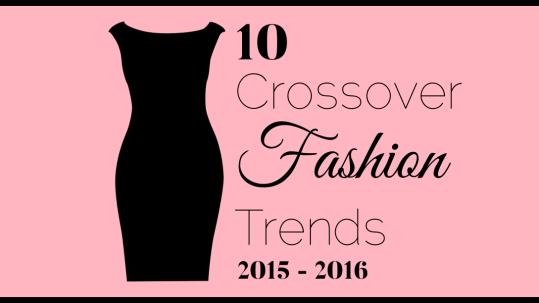
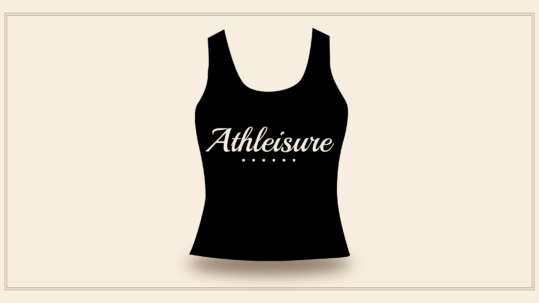
Sorry, the comment form is closed at this time.